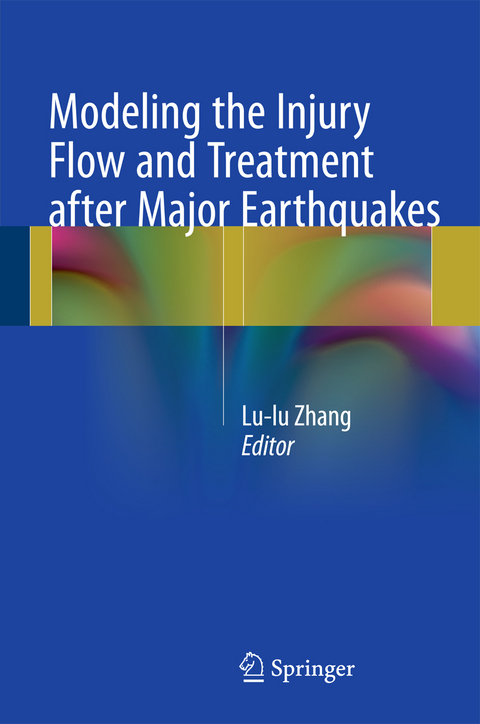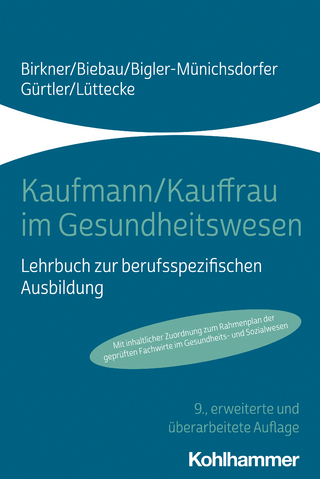
Modeling the Injury Flow and Treatment after Major Earthquakes
Seiten
2016
|
1st ed. 2016
Springer (Verlag)
978-94-017-7525-0 (ISBN)
Springer (Verlag)
978-94-017-7525-0 (ISBN)
This book discuss a series of earthquake emergency medical rescue complex models, which can provide theoretical support for medical disaster rescue work in the future.
This book consists of three parts. The first part is an introduction (chapter 1) which makes an overview of the purpose, meaning, methods and relative theory using in the research. The second part (chapter 2 to 8) includes “casualty flow” related factors such as the occurrences of earthquake casualty, the Length of Stay among the Hospitalized Patients, the medical evacuation in earthquake and rescue force related factors such as the medical rescue forces allocation in earthquake, the organization and command of earthquake rescue forces, Location and Distribution of Medical Rescue Institutions and from peacetime to wartime in hospital. The third part (chapter 9) is a summary including conclusion and policy-making suggestion.
This book consists of three parts. The first part is an introduction (chapter 1) which makes an overview of the purpose, meaning, methods and relative theory using in the research. The second part (chapter 2 to 8) includes “casualty flow” related factors such as the occurrences of earthquake casualty, the Length of Stay among the Hospitalized Patients, the medical evacuation in earthquake and rescue force related factors such as the medical rescue forces allocation in earthquake, the organization and command of earthquake rescue forces, Location and Distribution of Medical Rescue Institutions and from peacetime to wartime in hospital. The third part (chapter 9) is a summary including conclusion and policy-making suggestion.
Editor Lu-lu Zhang is a Professor at the Institute of Military Health Management, Second Military Medical University, Shanghai, China.
Introduction.- Modeling the occurrences of earthquake
casualties.- Logistic Regression Modeling the Length of Stay among the
Hospitalized Patients after the 2010 Yushu Earthquake.- Modeling
earthquake-related medical evacuation .- Modeling the medical rescue forces
allocation in earthquakes.- Modeling the organization and command of earthquake
rescue forces.- Modeling Location and Distribution of Medical Support
Institutions.- Modeling hospital transition from peacetime to wartime.- Summary.
| Erscheinungsdatum | 15.04.2016 |
|---|---|
| Zusatzinfo | 38 Illustrations, color; 7 Illustrations, black and white; V, 215 p. 45 illus., 38 illus. in color. |
| Verlagsort | Dordrecht |
| Sprache | englisch |
| Maße | 155 x 235 mm |
| Themenwelt | Sachbuch/Ratgeber ► Gesundheit / Leben / Psychologie |
| Medizin / Pharmazie ► Medizinische Fachgebiete ► Notfallmedizin | |
| Studium ► Querschnittsbereiche ► Prävention / Gesundheitsförderung | |
| Schlagworte | Injury Flow • Logistic Regression Modeling • Major Earthquake • Medical evacuation • Medical Relief System • Modeling and Simulation |
| ISBN-10 | 94-017-7525-7 / 9401775257 |
| ISBN-13 | 978-94-017-7525-0 / 9789401775250 |
| Zustand | Neuware |
| Haben Sie eine Frage zum Produkt? |
Mehr entdecken
aus dem Bereich
aus dem Bereich
Orthomolekulare Medizin in Prävention, Diagnostik und Therapie
Buch | Hardcover (2022)
Thieme (Verlag)
71,00 €
Lehrbuch zur berufsspezifischen Ausbildung
Buch | Softcover (2021)
Kohlhammer (Verlag)
46,00 €


